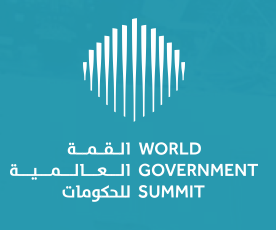Discussions at the fourth World Government Summit (WGS) focused on the "twin challenges" of monitoring and financing implementation of the Sustainable Development Goals (SDGs).
Participants also noted that the SDGs are taking place against the backdrop of slow economic growth globally and high youth unemployment in the Arab region.
 February 2016: Discussions at the fourth World Government Summit (WGS) focused on the “twin challenges” of monitoring and financing implementation of the Sustainable Development Goals (SDGs). Participants also noted that the SDGs are taking place against the backdrop of slow economic growth globally and high youth unemployment in the Arab region.
February 2016: Discussions at the fourth World Government Summit (WGS) focused on the “twin challenges” of monitoring and financing implementation of the Sustainable Development Goals (SDGs). Participants also noted that the SDGs are taking place against the backdrop of slow economic growth globally and high youth unemployment in the Arab region.
The WGS is an annual global forum about public service delivery and the future of government. The fourth Summit convened in Dubai, United Arab Emirates, from 8-10 February 2016, supported by the Organisation for Economic Co-operation and Development (OECD) and partners including: the World Bank, the World Economic Forum, the UN, the Gulf Cooperation Council, the Abu Dhabi Fund for Development and the League of Arab States (LAS). Over 3,500 ministers and other senior representatives of government, business and civil society attended, according to the outcome report.
The Summit comprised a three-day programme on ‘The SDGs In Action @ WGS,’ which included two interactive dialogues on: monitoring and reporting on the SDGs; and global financing for SDG implementation, hosted by the Federal Competitiveness and Statistics Authority, and the Ministry of International Cooperation and Development (MICAD) of the UAE, respectively. Six clusters also organized discussions: poverty and inequality; health, education and gender; food, water and energy; growth, employment and innovation; climate, ocean and biodiversity; and sustainable consumption and human settlements.
In his keynote address, Ángel Gurría, OECD Secretary-General, said the global economic growth rate of 3% in 2015 is the weakest since 2009, and that business investment in OECD economies remains subdued, while Brazil, Russia and China are experiencing economic slowdowns. Gurría called for strengthened collaboration with countries of the Middle-East and North Africa (MENA) region, in view of the security situation that has forced millions of people to leave their homes. He noted the challenge of high youth unemployment rates in the MENA region, for example, of 51% in Libya, 39% in Egypt and 38% in the Palestinian Authority.
On monitoring and reporting, participants noted that the SDG principle of “leaving no one behind” requires data disaggregation for measuring progress of the most vulnerable groups. They recommended drawing on all available data sources, including non-official data collection systems if “proper and efficient mechanisms” are in place for their validation, and stressed that comparability of data will be crucial. They recommended creating a culture of learning and evidence-based evaluation in government, through investments in outreach, education and training. They also called for assessing the impacts of decisions taken in one sector on other sectors.
On global financing, participants said international public finance, including official development assistance (ODA), will continue to be important in completing countries’ efforts to mobilize domestic public resources. They called for “tapping the full spectrum of the private sector” to mobilize its skills, technology and expertise, and they highlighted the important of the effective, efficient and transparent use of resources to support sustainable development. They stressed that governments should develop stable and transparent regulatory and legal frameworks to attract private investors while mitigating market failures. They said governments can advance SDG implementation by “de-risking” investments in sectors or geographic areas that would otherwise have difficulty attracting private finance, especially for “last mile” projects.
Participants also called on multilateral development banks (MDBs) to provide countries that have recently graduated from Least Developed Country (LDC) status with continuing access to concessional finance and capital markets, such as through bonds and debt financing. They said sovereign wealth funds, pension funds and equity funds should be more engaged in projects that that contribute to achieving the SDGs, such as by investing directly in a pipeline of bankable, scalable projects that receive appropriate technical support.
Other sources of finance for sustainable development, they said, could include: diaspora remittances; public-private co-financing of projects; microfinance; venture philantrophy; crowdfunding; incentives through tax credits and subsidies to encourage corporate and individual investments; and development assistance for strengthening of tax systems.
At a high-level ‘Outcomes’ session on 10 February, moderated by CNN news anchor Richard Quest, participants agreed that the WGS will serve as an annual platform for monitoring and reviewing SDG implementation. [IISD RS Sources] [WGS Website] [Keynote Address] [OECD MENA Governance Programme]